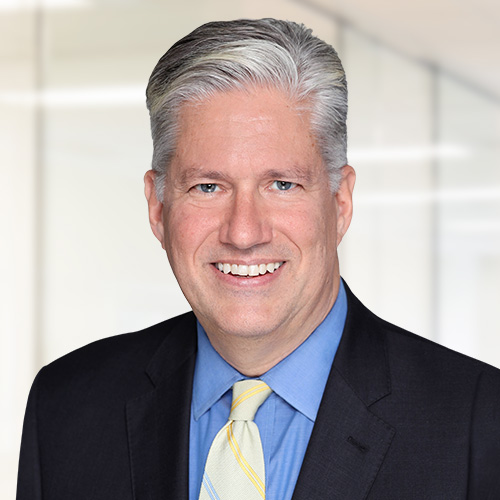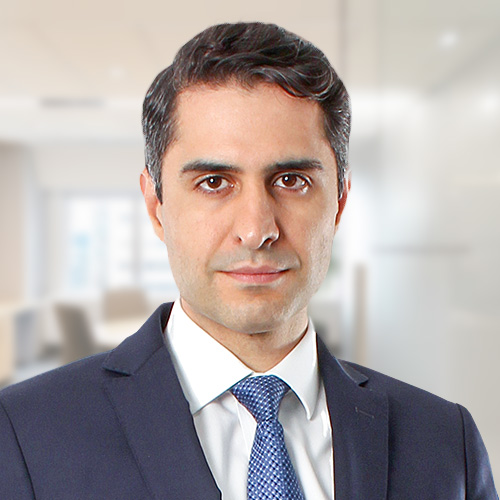Commentary
ESG Update
March 4, 2021
The Environmental, Social & Governance (ESG) revolution reached a long-awaited turning point in 2020. Responsible investment assets experienced explosive growth around the world, and the issues and developments in ESG are becoming increasingly complex and diverse. In this commentary, we provide you with a few highlights on the following: growth of global sustainable assets; government initiatives on climate change; and Global Alpha’s ESG progress.
Growth of global sustainable assets
According to Bloomberg, governments, corporations and other groups raised a record $490 billion in 2020, selling green, social and sustainability bonds. A further $347 billion was poured into ESG-focused investment funds – an all-time high. More than 700 new funds were launched globally.
Based on Morningstar’s report on sustainable open-end funds and ETFs, there were a total of 4,153 sustainable funds as of December 2020[1]. The total sustainable fund assets hit a record $1.65 trillion in 2020. In Q4 alone, the inflow surpassed $150 billion, led by Europe.
Quarterly Global Sustainable Fund Flows (USD Billion)

New ESG fund launches accelerated into year-end, with a record of 196 in Q4. Again, the increase was driven by Europe, which launched 147 funds, while the United States (US) and rest of the world launched 12 and 37, respectively. According to the Institutional Shareholder Services (ISS) ESG Asset Manager’s survey conducted in Q3 2020, 37.5% of asset managers reported plans to hire more ESG-related staff to manage the expected increase in workload[2].
Government initiatives on climate change
Europe has consistently been a leader on the ESG front. The European Green Deal aims to make the European Union (EU) climate neutral by 2050. It plans to increase the EU’s greenhouse gas emission reductions target for 2030 to at least 50% and towards 55%, compared with the 1990 level.
Several pieces of sustainable finance legislation will come into force soon. The most mentioned is the EU Taxonomy Regulation, which is intended to ensure that designated environmentally sustainable economic activities genuinely contribute to climate change mitigation and adaption, and thus to the transition to a low-carbon economy.
In the US, the Biden administration plans to invest $1.7 trillion to achieve 100% clean energy and net-zero emissions by 2050. Meanwhile in South America, Amazon rainforest fires resulted in enhanced measures to protect biodiversity in Brazil. The Brazilian government faces a threat of divestment by major European investors if ESG risks facing Amazon rainforest regarding deforestation, mining and beef production are not addressed.
Asia is a latecomer in terms of ESG development, but is catching up rapidly. Japan is committed to becoming carbon neutral by 2050, and plans to spend $2 trillion in green business and investment. China also announced the carbon neutral target by 2060 and will implement mandatory environmental reporting by companies in 2021. The Hong Kong Stock Exchange already set up mandatory ESG disclosure rules regarding board disclosure, climate change and ESG reporting.
Global Alpha’s ESG progress
Principles for Responsible Investment (PRI) Reporting
The assessment of our PRI Reporting in 2020 demonstrated a clear improvement in comparison to 2019. Three reporting modules were applicable to us:
- Strategy & Governance: Our score was A+ (A in 2019)
- Direct & Active Ownership: Listed Equity – Incorporation: Our score was A (B in 2019)
- Direct & Active Ownership: Listed Equity – Active Ownership: Our score was B (same as in 2019)
Proxy Voting
While acknowledging the slow progress in active ownership, in 2020 we enhanced our engagement efforts by implementing a detailed Proxy Voting Policy with stricter guidelines. When we considered voting against a company’s proposal, we would engage with them first.
In 2020, we voted against 21% of proposals, versus 10% the previous year. The biggest disapproval was related to executive compensation, where we voted against 39% of proposals, versus 23% a year earlier. Other common issues were about board independence and board diversity.
Our Proxy Voting Policy in some cases is more stringent than ISS’s recommendations. In 2020, we voted against ISS for 14% of proposals, versus 3% in 2019.
Diversity & Inclusion
In October 2020, we became one of the founding signatories to the new Canadian Investor Statement on Diversity & Inclusion. Subsequently, we updated our ESG questionnaire to companies to enhance engagement on this topic. We work with several brokerage firms that are owned by women or minorities.
Within Global Alpha we also promote diversity & inclusion:
- One of the three co-founders is female;
- Three of the six partners at the firm are minorities, and two of the six are female;
- Seven of the eleven team members were immigrants to Canada;
- The team speaks many languages, including English, French, Spanish, Mandarin, Japanese, Vietnamese, Hindi, Gujarati, Memoni, Konkani and Marathi.
It is our strong belief that diversity of team and thought are key contributors to successful investing. It has been a deliberate practice at the firm to build a team of investment professionals with different backgrounds and experiences. Collectively, the team has worked across a number of industries, and in a variety of capacities. In particular, the team believes that having professional experience outside of the finance industry provides an added perspective when evaluating a company and understanding its growth potential.
Carbon Footprint Analysis
Based on the Climate Impact Assessment reports provided by ISS, the carbon footprint analysis of our Global Small Cap and EAFE Small Cap portfolios have consistently beaten benchmarks since the adoption of the reports in 2017.
Over the years, our Global Small Cap portfolio has been 30-40% less emissions intense than the benchmark, and our EAFE Small Cap portfolio 60-70% less intense.
Examples of ESG Leaders
Many of our holdings demonstrate excellent ESG practices. Here we would like to highlight two.
Vitasoy International Holdings (345 HK) was listed in 2020 Corporate Knights’ Global 100 Most Sustainable Corporations in the World. Among the 8,080 listed companies being rated worldwide, it ranked 62nd, up from 90th in 2019. Vitasoy is a leading food and beverage company in Asia, known for its soy-based products. It has been a holding since inception in 2008.
DMG Mori Co. Ltd. (6141 JP) announced recently that it aims to achieve carbon neutrality in all its operation bases across the world in 2021. DMG Mori AG, its European subsidiary, already achieved carbon neutrality in 2020, by offsetting the carbon emissions from its business activities through the investment in certified sustainable and climate protection projects. DMG Mori is the largest machine tool company in the world.
Outlook
Without a doubt, responsible investment assets will continue to grow rapidly, as more investors turn to ESG, not only for their personal values, but also for better risk management and investment return.
However, the world of responsible investment is not all rosy. The lack of company disclosure, different ESG approaches, sometimes contradictory ESG ratings, and fears of ‘greenwashing’ have created a maze for many people. Covid-19 also caused more concerns around social issues, such as workplace safety, treatment of employees, diversity and inclusion, and supply chain labour dynamics.
As a responsible investor, we are conscious that our role carries renewed purpose.
[1] Global Sustainable Fund Flows: Q4 2020 in Review, Morningstar, January 28, 2021
[2] ESG Themes & Trends 2021 – Volatile Transitions: Navigating ESG in 2021, Institutional Shareholder Services







